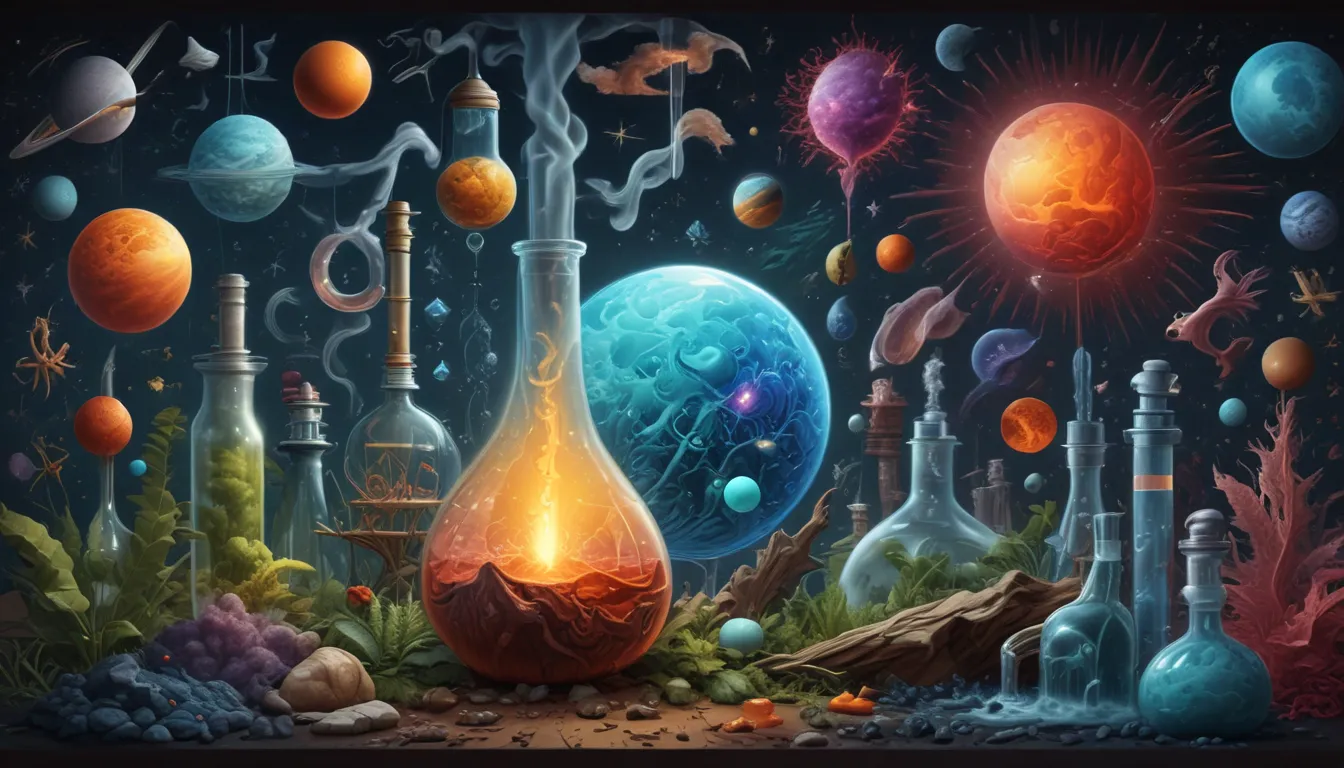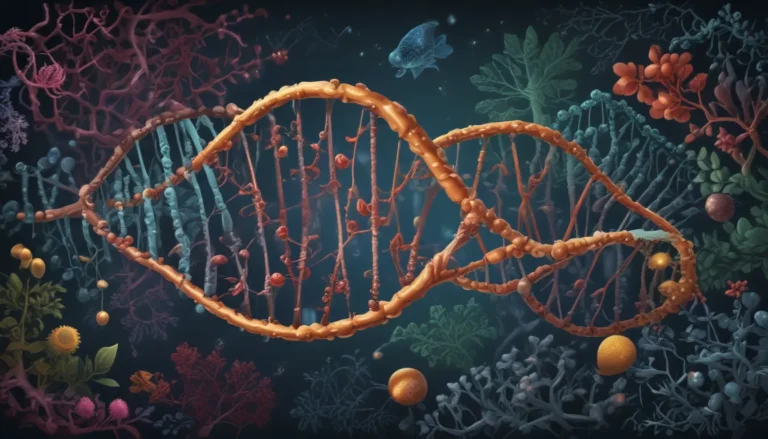A Note About Images: The images used in our articles are for illustration purposes only and may not exactly match the content. They are meant to engage readers, but the text should be relied upon for accurate information.
Physical science, encompassing various disciplines such as physics, chemistry, astronomy, and earth sciences, offers a captivating lens through which we can understand the non-living systems that shape our world. From the behavior of matter and energy to the principles of motion and force, physical science delves into the fundamental laws that govern the universe. In this article, we will embark on a journey through the captivating realm of physical science, exploring 18 intriguing facts that will spark your curiosity and deepen your appreciation for the wonders of the natural world. Whether you are a science enthusiast or simply intrigued by the mysteries of the cosmos, these facts are sure to captivate your imagination and expand your knowledge of the fundamental principles that underpin the fabric of our existence.
Unveiling the World of Physical Science
Physical Science: Exploring Non-Living Systems
Physical science is a branch of natural science that focuses on the study of non-living systems and how they interact. It encompasses a wide range of scientific fields, including physics, chemistry, astronomy, and earth sciences. This discipline seeks to understand the fundamental principles that govern the behavior of matter and energy, from the smallest subatomic particles to the vast expanse of the universe.
The Crucial Role of Physical Science
By investigating the properties, changes, and interactions of non-living matter and energy, physical science provides valuable insights into the natural world. It helps us comprehend the mechanisms behind everyday phenomena, technological advancements, and natural occurrences like weather patterns, geological processes, and celestial events.
Exploring the Diverse Subfields of Physical Science
Physical science comprises several interconnected disciplines, each focusing on specific aspects of the non-living world. These subfields include physics, which explores the fundamental forces and properties of matter and energy; chemistry, which delves into the composition, structure, and reactions of substances; astronomy, which investigates celestial objects and phenomena in the universe; and earth science, which studies the processes shaping the planet.
The Foundation of Physical Science: Observation and Experimentation
Physical science is built upon the foundation of observation and experimentation. Through careful observation of natural phenomena and systematic experimentation, scientists can formulate and test hypotheses, leading to a deeper understanding of the principles governing the non-living natural world.
The Practical Applications of Physical Science
Physical science has numerous practical applications that impact our daily lives, from technological innovations to medical advancements. It underpins a wide array of modern conveniences and critical developments, contributing to the betterment of society.
Driving Technological Advancements Through Physical Science
The principles and discoveries of physical science have driven significant technological advancements throughout history. From the harnessing of electricity to the development of space exploration technologies, physical science plays a pivotal role in shaping the technological landscape.
Contributions to Understanding the Universe
Disciplines such as astronomy and physics have expanded our understanding of the universe. Physical science has unveiled the mysteries of celestial bodies, the behavior of light, the structure of atoms, and the fundamental forces shaping the cosmos.
Groundbreaking Discoveries in Physical Science
The pursuit of knowledge in physical science has yielded groundbreaking discoveries that have transformed our understanding of the natural world. From the principles of motion and gravity to the structure of DNA, these discoveries have reshaped scientific paradigms and propelled human progress.
Fostering Critical Thinking and Problem-Solving Skills
Engaging with the complexities of physical science cultivates critical thinking and problem-solving skills. By analyzing data, formulating hypotheses, and conducting experiments, individuals develop the capacity to approach challenges systematically and creatively.
Promoting Scientific Literacy
Studying physical science nurtures scientific literacy, enabling individuals to comprehend and evaluate scientific information critically. This proficiency empowers informed decision-making and fosters a deeper appreciation for the natural world.
Inspiring Curiosity and Wonder
The exploration of physical science fuels curiosity and wonder about the natural world, inviting individuals to ponder the marvels of the universe. From the microscopic realm of atoms to the grandeur of galaxies, physical science fosters a sense of awe and appreciation for the intricacies of existence.
Encouraging Interdisciplinary Collaboration
Given its diverse subfields, physical science encourages interdisciplinary collaboration, leading to innovative solutions and a more comprehensive understanding of complex phenomena. This collaborative spirit promotes the exchange of ideas and methodologies, driving scientific progress.
Exploring Matter and Energy
Matter and energy are central themes in physical science, encompassing the study of composition, properties, changes, transformations, and interactions within natural systems.
Investigating Motion and Forces
The principles of motion and forces are fundamental to physical science. Disciplines like physics explore the behavior of objects in motion, the forces acting upon them, and the principles governing these phenomena.
Studying the Properties and Behavior of Substances
Chemistry delves into the properties and behavior of substances, exploring the composition, structure, and reactivity of elements and compounds, elucidating the intricacies of chemical processes and transformations.
Unraveling Earth Processes
Earth science focuses on the study of the Earth and its dynamic processes, including geological phenomena, atmospheric dynamics, and interconnected systems shaping the planet.
Delving into Cosmic Mysteries
Astronomy explores the vastness of space and celestial bodies, studying stars, planets, galaxies, and cosmological phenomena, unraveling the mysteries of the cosmos and our place within it.
Driving Scientific Inquiry and Innovation
Physical science continues to propel scientific inquiry and innovation, influencing technological advancements and our understanding of the natural world, shaping human knowledge and progress.
In conclusion, physical science offers a captivating glimpse into the intricate workings of the natural world. By exploring fundamental concepts such as energy, motion, and the structure of matter, physical science provides valuable insights that deepen our understanding of the universe. Embracing the wonders of physical science not only enriches our knowledge but also fuels our curiosity to explore the boundless frontiers of scientific discovery.
FAQs
What are the main branches of physical science?
Physical science comprises several key branches, including physics, chemistry, astronomy, and earth science. These disciplines collectively investigate diverse aspects of the natural world, from the behavior of matter to the forces shaping the universe.
How does physical science impact our daily lives?
Physical science plays a crucial role in our daily lives, influencing technologies we use and the natural phenomena we encounter. The principles of physical science are woven into the fabric of our existence, shaping our understanding of the world and driving technological advancements.
Delve into the captivating world of physical science and continue your quest for knowledge. Explore fascinating topics that spark your curiosity and expand your horizons. Trust in our commitment to quality and authenticity as you learn and explore with us.






